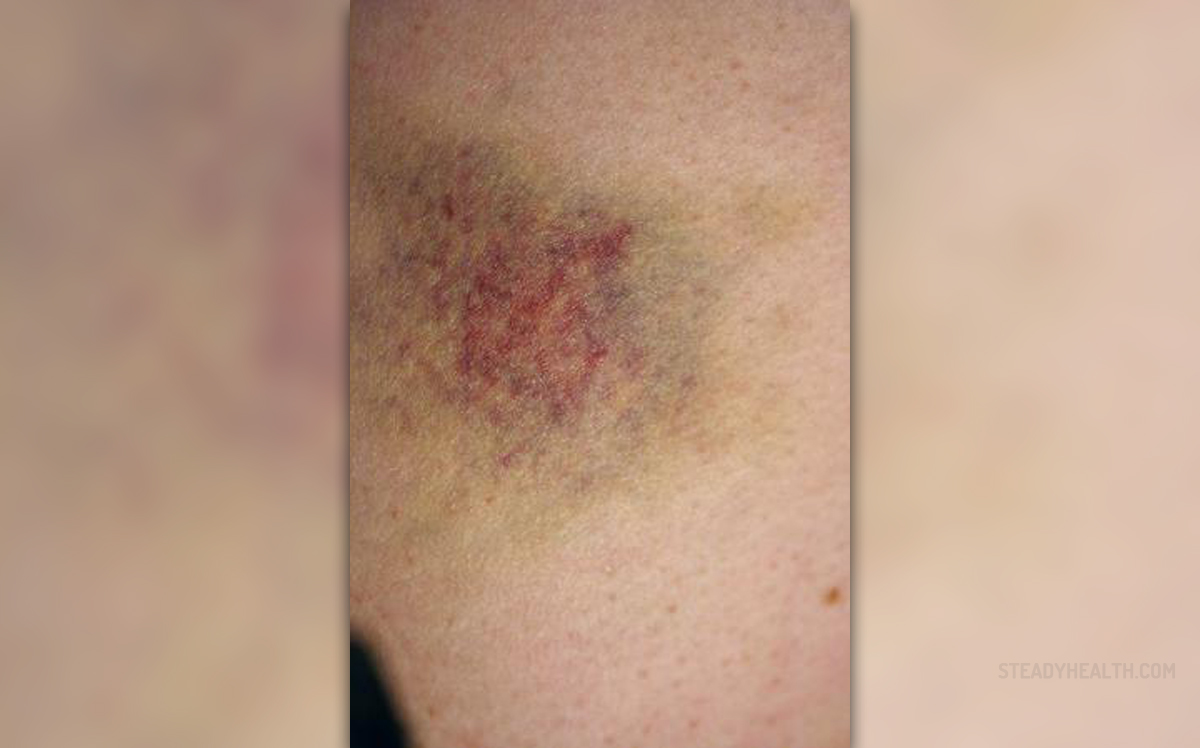
Introduction
A variety of medical conditions can be responsible for bruising. Bruises are normal reaction of the soft tissue to injury or trauma. However, in people who appear to be healthy spontaneous bruising may point to some hidden condition. The problem lies in blood clotting system. Generally increased bruising is a consequence of either low number of platelets or decreased level of coagulation factors. The bruise is actually a collection of blood present beneath the skin. If this collection of blood becomes large the correct term for the bruise is hematoma. On the other hand small purple spots scattered on the skin are called purpura.
Bruises Caused by Damaged Capillaries
Increased bruising is common in certain people with no underlying cause present.
On the other side in certain conditions that are transmitted from the parents onto the children the blood capillaries are more fragile than in normal people. They burst rather easily and lead to increases bruising.
Certain medications can lead to increased bleeding from capillaries. They include corticosteroids and some antibiotics such as penicillin.
Autoimmune diseases feature with inflammation of blood vessels. This also refers to capillaries so people who are suffering from lupus erythematodes or rheumatoid arthritis or some other autoimmune disease are prone to bleeding more.
Bruises Caused by Platelet Deficiency
Low number of platelets or thrombocytopenia always leads to increased bleeding and consequent bruising. These blood cells are insufficient either due to improper production in bone marrow or are quickly destroyed. Cancers such as leukemias and lymphomas lead to decreased number of platelets due to low production. Thrombocytopenia caused by improper production is also present in aplastic anemia. On the other hand, the increased destruction of these blood cells is evident in autoimmune diseases, viral infections and certain cancers. Some medications can reduce the lifespan of the platelets.
In case of dialysis, cardiac bypass surgery, or when a patient receives large amount of blood transfusions, the platelets are used extensively and this is another cause of thrombocytopenia.
Insufficiency of Coagulation Factors and Other Diseases
Coagulation factors are extremely important in prevention of bruising. Together with platelets they control and participate in a process of coagulation. In certain illnesses such as hemophilia there is clear insufficiency of some blood clotting factors and these people are more prone to bruising. Apart from hemophilia another conditions such as liver disease or certain cancers can lead to improper coagulation and consequent bruising. And finally even the deficiency of vitamin K which is essential vitamin in process of coagulation may be the cause of increased bruising.


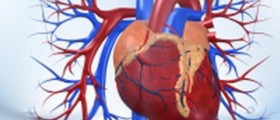

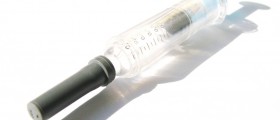
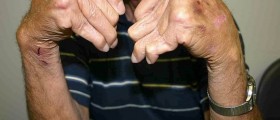

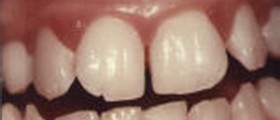
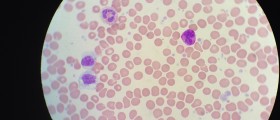
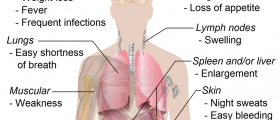




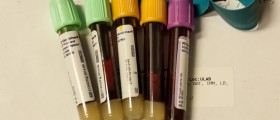


Your thoughts on this
Loading...